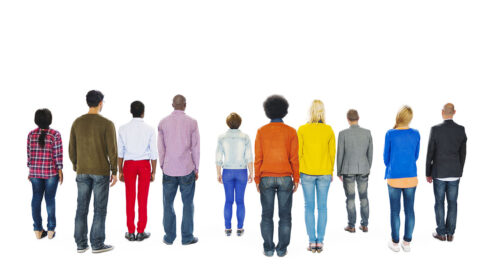What Is It?
Gratitude means more than simply saying thanks. Researchers usually define gratitude as a feeling or state that results from both (1) recognizing a good thing, such as a positive outcome or gift we’ve received, and (2) recognizing that this good thing came from outside ourselves. Although we most often experience gratitude in response to the actions of other people, we can feel grateful to nonhuman sources, too, such as nature, a higher power, or the universe.
Several studies have investigated the nuances of gratitude, finding that three factors tend to increase the amount of gratitude people feel for benefits they’ve received: the more purposefully someone has helped us (as opposed to unintentionally or with an ulterior motive), the more they’ve sacrificed to do it, and the more the outcome benefits us, the more grateful we feel.
In a staff meeting, a teacher publicly thanks his colleague for helping him organize a whole-school assembly. He acknowledges that his co-worker recognized the extra pressure this responsibility added to his plate, and that even with her own long list of extra duties on top of her teaching load, she still took the time to help him. As a result, the teacher did not have to stay up until midnight playing catch-up with his grading, and the assembly was a huge success.
It is important to note that the majority of research on gratitude has been done with Western white populations, offering a narrow, and possibly limited, view of gratitude. Cross-cultural studies on gratitude have found that other cultures express gratitude differently and for different reasons. In addition, gratitude may not have the same benefits for everyone due to these differences.
A white American principal wanting to create a positive staff climate invites his diverse staff to publicly thank each other at the end of staff meetings. He notices that some of his staff members appear uncomfortable and don’t participate. After, he discretely asks them about their response to the activity and learns that saying “thank you” out loud is not a cultural norm for them; instead, gratitude is expressed through actions.
Why Is It Important?
Over the past couple of decades, hundreds of studies have documented the social, physical, and psychological benefits of gratitude.
Gratitude is good for teachers’ well-being.
- Gratitude makes teachers feel more satisfied and accomplished, while reducing emotional exhaustion and burnout.
- When gratitude is woven into an institution, the people who work there report higher job satisfaction, regardless of how much gratitude they personally experience.
Gratitude improves our psychological well-being.
- Gratitude has been shown to increase happiness, life satisfaction, and positive emotions, and to decrease anxiety and depression.
Gratitude is good for our bodies.
- Gratitude strengthens our immune systems, reduces physical symptoms, and encourages us to take care of our health; plus, it helps us sleep better.
Gratitude makes us better people.
- Instead of making us complacent with what we have, gratitude helps motivate us towards self-improvement.
Gratitude improves our relationships.
- With regards to others, gratitude promotes forgiveness, compassion, helpfulness, and altruism.
- Practicing gratitude helps us feel closer and more committed to friends and partners, and less lonely.
- Gratitude increases relationship satisfaction and encourages more equitable division of labor between partners.
Gratitude helps us make friends.
- When we express gratitude, others perceive us as more friendly and thoughtful and are more likely to want to get to know us better.
Practices

Take-Home Skill: Savoring Moments of Connection With Kids

Behind Your Back

Eight Inner Strengths for Leaders

Sustaining an Open Heart

Positivity Journals for Teachers

Gratitude for the Wider School Community

Gratitude Circle for Staff Members

Are you ready to build a kinder, happier school where everyone belongs? Join Greater Good Educators! Explore the science of well-being in a supportive community of educators from around the world. Registration is now open for the 2025-2026 school year!


